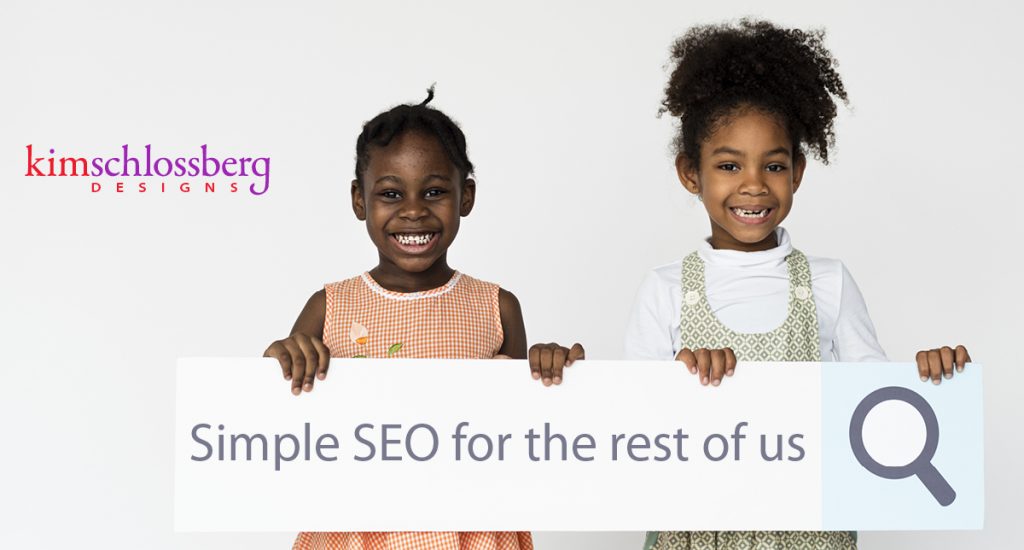 I’ve been getting many questions lately about how to get a higher Google ranking for your site. Search Engine Optimization (SEO) is a very complicated process, but here are some simple, high-level pointers that should help most of us.
I’ve been getting many questions lately about how to get a higher Google ranking for your site. Search Engine Optimization (SEO) is a very complicated process, but here are some simple, high-level pointers that should help most of us.
At a very basic level, this is how search engines work. They have “bots,” or “spiders,” which are actually computer programs, that continuously scan (or “crawl”) the entire internet for content. They will index whatever they see and can recognize. When someone searches for content the bots have scanned, the search engine will display that site to the searcher. The better the engine thinks your site answers the user’s query, the higher it will be ranked.
There’s much, much more involved in getting your site ranked well on a search engine. But for our purposes here, just know that you have to have something for the search engines to read. They can’t yet “read” images. The search engines are really good at reading text, and they will index “alt-text” tags for images. But they can’t index the images themselves because they can’t read them.
Recently someone asked me to look at a website he built himself. The homepage was a single image, with elaborate image maps built so that when someone clicked on one area of the illustration, they would be taken to an interior page of the website. There was no text on the home page (and no alt-text on the image), so the search engines didn’t have any content to search. He was wondering why his site didn’t turn up in searches. The answer, in this case, was that there was literally nothing there for the search engine to see.
This is an extreme example. But there are several things that most of us can do to help our sites be more visible and helpful to both people and search engines. First, three main points:
- Human beings should always be the most important audience for your site. Most of these suggestions will make your site more appealing and accessible to humans, as well as spiders. I always consider my human audience first.
- Google and the other search engines want to send traffic to the sites that they believe will be most helpful, so anything that makes your site look popular and helpful is a plus.
- The algorithms are very complex and constantly changing, so these are general principles, not today’s trendy trick-of-the-week.
Here are some simple things that we can do to help increase our search rankings, and more importantly, our visibility to our customers.
- Fresh content. Make at least minor changes to the site frequently. Search engines consider sites that change to be more active, and therefore more helpful to visitors. An active blog is a good way to do this.
- Inbound links. This technique has been misused in the past, with “link farms” – this is not at all what I’m suggesting. But relevant inbound links are something Google considers when they rank how helpful your site is. Social media posts linking back to your site, engagement with organizations or other businesses that link to your site, news articles, sponsorships, are all ways to get links to your site.
- Don’t be too clever. Use plain language, especially on your titles. If you try to be cute and clever, the search engines won’t understand what the page is about, and might not show your site to the right people.
- Home page content. The recent trend for home pages with big, bold, hero images and few words, is great for humans – but not so useful for search engines. Remember – the search engines need text to read. So at least have enough text on the home page to clarify what you do.
- Keywords. When we talk about “SEO” or “search engine optimization,” the first question is what words do you want to optimize for? Think of the user’s intent, what are they looking for, and how you can help them. What are the main words and phrases that you want? Make sure those are used on your site. The home page, headings, and content physically higher on the page “count” more than other text.
- Audience. Keep in mind that your main audience for your site is human beings, but throw in some content so the bots and spiders can notice you’re there.
If you follow these hints, your site will be more engaging and helpful to people. And it just might attract more attention from the search engines, as well. If you want a more detailed SEO campaign, we can help you with that, too.
- How 2020 can make 2021 better - December 28, 2020
- Welcome to the Kim Schlossberg Designs newsletter - December 18, 2020
- A Strong Brand is the Key to Resilience - April 10, 2020
